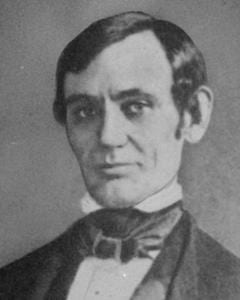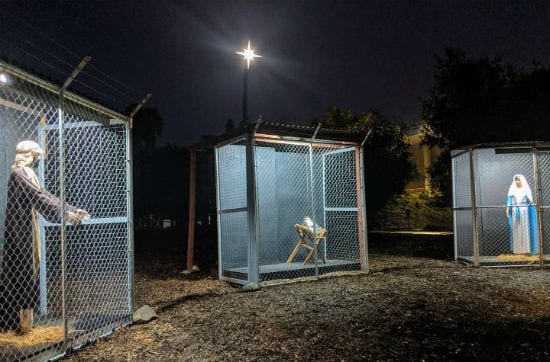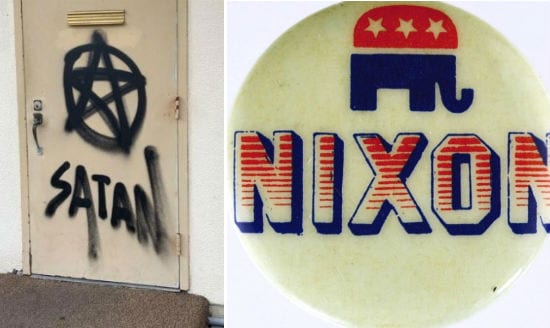A few weeks back, as the famous Iraqi schools were reopening, NPR ran a story in which U.S. soldiers spoke with pride of the extra efforts they had put into repairing and painting the classrooms of one school.
This was a "good news" story, although I paid it no special note then, since it came before the Bush administration began its whiny campaign bemoaning the supposed absence of such reporting.
The soldiers' actions were commendable, but what struck me was this: Why on earth were U.S. soldiers repainting classrooms in a country with massive unemployment? Wouldn't it be both more efficient and wiser to involve the Iraqi people themselves in this effort? The goal, after all, is not to show the Iraqis all the good things we Americans can do on their behalf, but to show them all the good things we can enable them to do for themselves.
Before the invasion we heard a great deal about the large, well-educated and cosmopolitan Iraqi middle class. Ever since, we've seen them portrayed and treated as a nation of schoolchildren — in need of constant discipline and incapable of fending for themselves.
The most glaring example of this came from Baghdad blogger Riverbend (the real one), who noted that the coalition did not trust Iraqi engineers to rebuild a bridge they had built themselves in the first place — and then rebuilt after it was destroyed in the previous Gulf War:
One of my cousins works in a prominent engineering company in Baghdad- we’ll call the company H. This company is well-known for designing and building bridges all over Iraq. My cousin, a structural engineer, is a bridge freak. He spends hours talking about pillars and trusses and steel structures to anyone who’ll listen.
As May was drawing to a close, his manager told him that someone from the CPA wanted the company to estimate the building costs of replacing the New Diyala Bridge on the South East end of Baghdad. He got his team together, they went out and assessed the damage, decided it wasn’t too extensive, but it would be costly. They did the necessary tests and analyses (mumblings about soil composition and water depth, expansion joints and girders) and came up with a number they tentatively put forward- $300,000. This included new plans and designs, raw materials (quite cheap in Iraq), labor, contractors, travel expenses, etc.
Let’s pretend my cousin is a dolt. Let’s pretend he hasn’t been working with bridges for over 17 years. Let’s pretend he didn’t work on replacing at least 20 of the 133 bridges damaged during the first Gulf War. Let’s pretend he’s wrong and the cost of rebuilding this bridge is four times the number they estimated- let’s pretend it will actually cost $1,200,000. Let’s just use our imagination.
A week later, the New Diyala Bridge contract was given to an American company. This particular company estimated the cost of rebuilding the bridge would be around — brace yourselves — $50,000,000!!
It's difficult to grasp everything that is wrong with the CPA's strategy here. First, and most important, Iraqi engineers and Iraqi firms should be given priority on any such project. If your goal is to get the Iraqi economy going again, then you need to spend money in Iraq, employing Iraqis. This makes basic economic sense, but it also makes sense in terms of intangibles, like pride of ownership, a sense of accomplishment, empowerment for self-government, etc.
Choosing the $50 million bid over the $300,000 bid is also, of course, a colossal and reckless waste of money. Overall, this story — treat it as skeptically as you like, but it rings true for me — demonstrates that the CPA seems more interested in enriching Bush cronies at Halliburton and Bechtel than in actually rebuilding the economy, infrastructure and civil society of Iraq.
By favoring U.S. corporations over indigenous Iraqi bids, the CPA treats as irresponsible children the very people who need to be empowered and employed if Iraq is to be restored by and for its own people.
All of which is why I find this story, by Ariana Eunjung Cha of The Washington Post, among the most encouraging and hopeful things I have read.
Cha writes of the positive things Iraqis are able to accomplish with relatively tiny sums of money provided by U.S. soldiers:
Looters had torn apart the seven-room pediatric wing at the medical center [in Mosul] and there was no place to treat the children who were lined up in the streets. Kifah Mohammad Kato was desperate and told a U.S. soldier about it in late June on the off-chance he could help.
Within a week, a Humvee pulled up with the first installment of $9,600 in cash to fix the wing. Within four more weeks, the building was rebuilt and refurnished, complete with fuzzy blankets in primary colors and Mickey and Minnie Mouse decorations. …
The money comes from seized Iraqi assets, the Saddam Hussein regime's overseas bank accounts and cash stockpiles found in palaces and the walls of government buildings in Iraq.
Here you have a rebuilt pediatric health facility (Bushies note: Happy News!), a project accomplished by Iraqis with Iraqi money. Here you have a genuine, mutually positive relationship between U.S. soldiers and Iraqi civilians.
Many of our young people will return from Iraq haunted by images of death, pain and horror. The unnamed soldiers in this story will return one day with the knowledge that they had a hand in the healing, "complete with fuzzy blankets in primary colors." Support for the troops must include such concerns — a concern for their souls and well as their safety. A concern to see both their lives and their liveliness, their innocence if possible, preserved. We owe it to them to send them out in their Humvees not always to kill or be killed, but sometimes also to deliver $9,600 to a pediatrician who asked for help.
Cha writes:
The speed and ease with which reconstruction money is being handed out by the military here contrasts sharply with the delays and controversy surrounding the handling of major reconstruction funds by the Pentagon and U.S. Agency for International Development. …
The money for most military projects in Iraq goes through something called the commander's emergency response program. About $100 million has been allocated so far and the 101st Airborne Division, which oversees northern Iraq, has spent about $31 million of it. It has been used, officials said, for more than 11,000 projects such as hiring a civil defense corps, patching roads and fixing an oil refinery and a sulfur plant.
It's a new idea that has allowed soldiers who are patrolling the streets, and have a ground-level view of people's needs, to make a quick impact without having to go through the bureaucratic details that government contracts usually require.
Almost all the money is given to Iraqis, while other reconstruction funds — about $3 billion so far — have gone almost exclusively to American companies, which may or may not subcontract with Iraqi companies.
Compare those numbers to the kind of results we're seeing from our blank-check, no-bid contracts with Halliburton, et. al.
For $31 million reclaimed from Saddam Hussein's personal stash, the 101st Airborne was able to employ Iraqis to complete 11,000 projects — refurbished infrastructure, a job- and wealth-producing refinery, civil defense.
For $31 million borrowed from future American taxpayers, Halliburton promises to build half a bridge.












